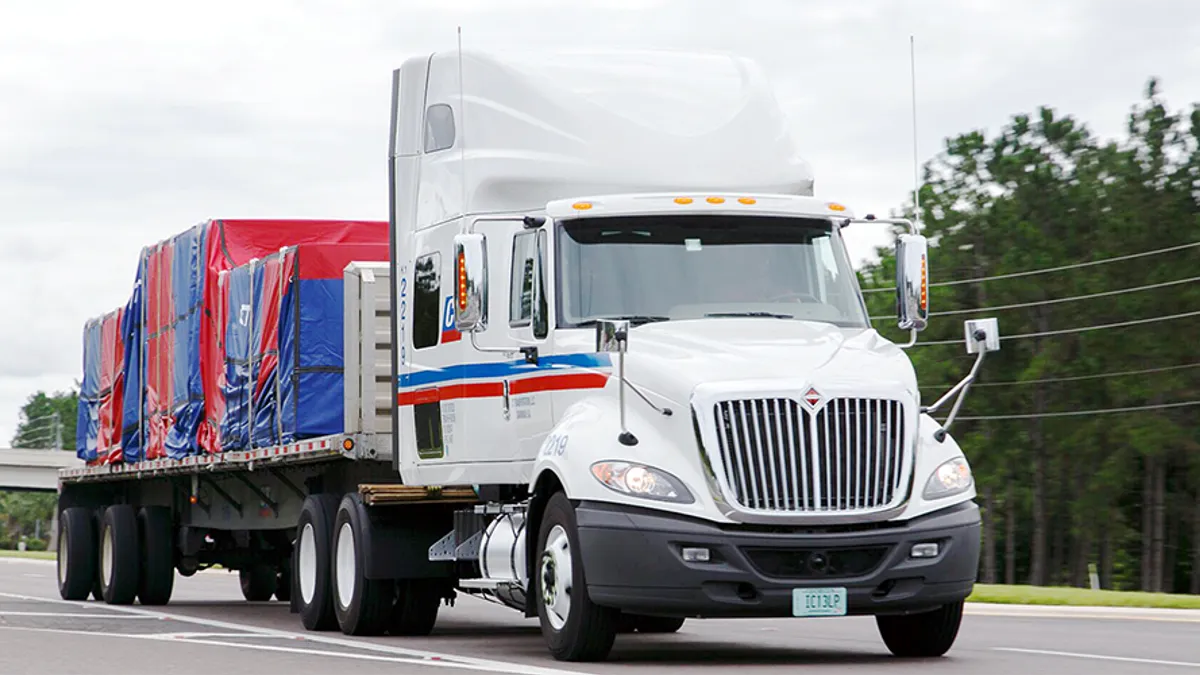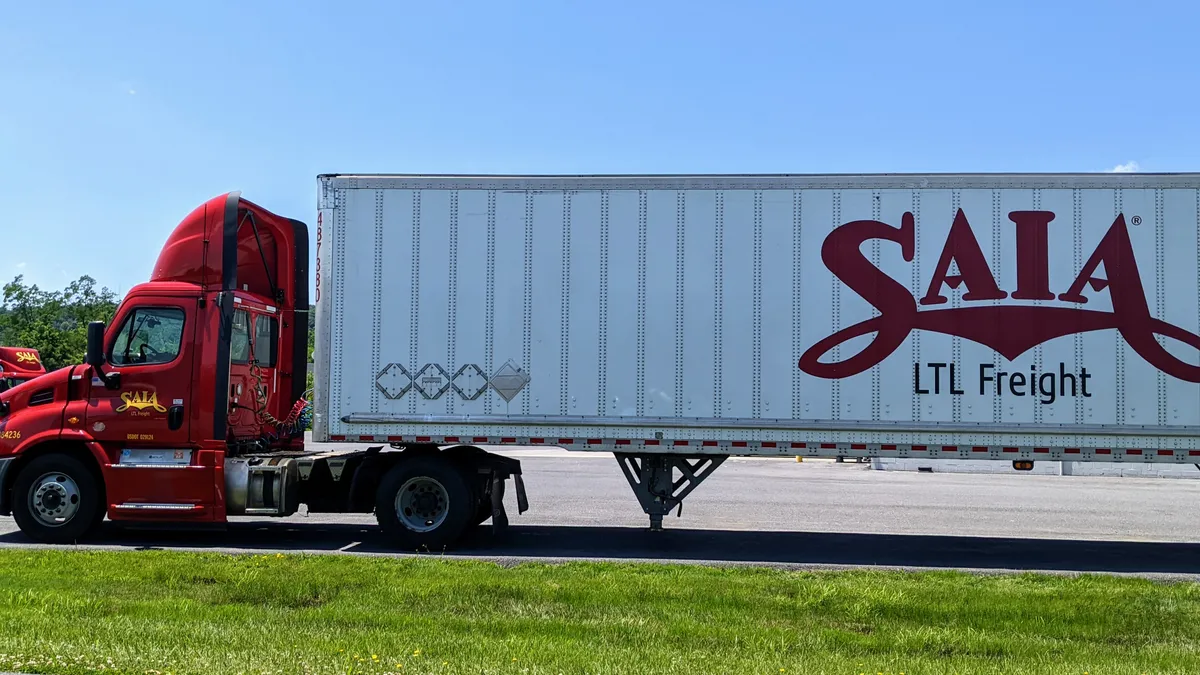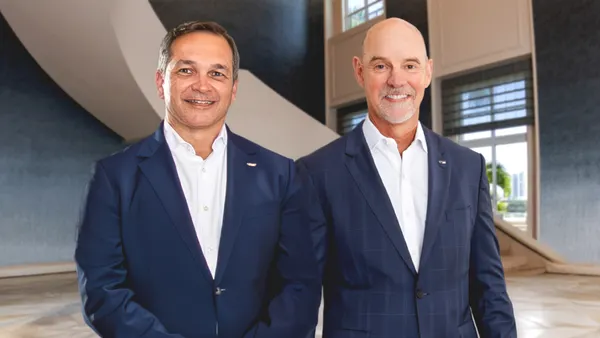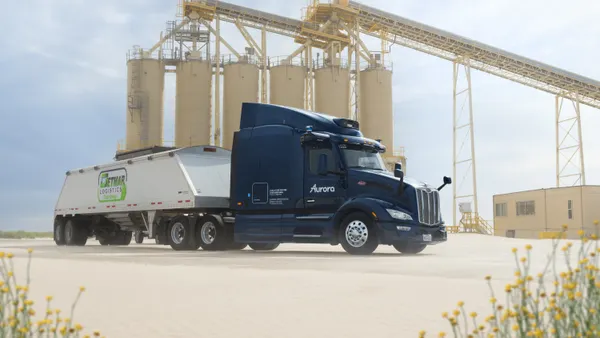TFI International's acquisition count totals nine firms in 2020, and analysts believe it would have been an even more purchase-intense year for the Canada-based carrier if not for a pandemic.
Jason Seidl, Cowen managing director for industrials, airfreight and surface transportation, said TFI's balance sheet is so strong, especially after two equity offerings in 2020, that 2021 will follow a familiar pattern.
"I think 2021 will be another year of acquisition," said Seidl. "They have the balance sheet to continue."
TFI has acquired 88 North American companies since 2008, according to an Oct. 26 memo from Stifel.
The carrier is growing so smoothly, Seidl said, that he expects the publicly traded company, available on the Toronto Stock Exchange and the New York Stock Exchange, to domicile in the United States. Such a move would attract various index buyers, such as major institutional funds, Seidl said.
Growth by 2 methods
TFI, the 11th-largest North American carrier, had a good year on its normal business fronts, according to Seidl. Its organic business is resilient in Canada and the United States, analysts said.
But TFI is also adding new layers through acquisitions. And there are larger opportunities for Canada's largest carrier in B2B when the economy reopens after the pandemic, said Dan Fong, investment analyst for industrials for Veritas Investment Research.
The company has four distinct parts: TL, LTL, package, and last mile and logistics. TL makes up about 47% of its revenues, according to an Oct. 26 memo by Stifel.
TL makes up nearly half of TFI's revenue
Fong believes TFI will strengthen when factories and restaurants fully reopen. But TFI is capitalizing on business-to-consumer, or B2C, transactions. The company has strong segments in package and courier services, as well as a logistics and last-mile segment. But the company's lucrative B2B segment has been slowed, Fong said. When the economy reopens, there will be more B2B deliveries, which have better margins because of the density of delivery stops, Fong said.
TFI's segments are a diverse mix, but some carriers, such as Roadrunner Transportation Systems, had trouble offering multiple services. Roadrunner ultimately decided to focus on LTL. XPO has also floated the idea of selling off parts, and focusing solely on "pure play" LTL.
"They know what they are looking for. This has been in their DNA for quite a while ... They are able to integrate very effectively."

Dan Fong
Investment analyst for industrials for Veritas Investment Research Corp
Seidl doesn't believe TFI has a problem of siloed operations, and he said when TFI makes an acquisition, it fits snugly into its portfolio. Fong agreed.
"They know what they are looking for," said Fong. "This has been in their DNA for quite a while ... They are able to integrate very effectively."
David Ross, Stifel analyst, advised his clients in an Oct. 26 memo that TFI's purchases were textbook lessons in how to buy trucking firms. Ross wrote businesspersons should go through their earnings transcripts and observe how TFI and its president and CEO, Alain Bedard, pull off such maneuvers.
"You'll learn a lot about the company's culture, how to buy companies, how to run companies, and you'll learn about several sectors of transportation as well," Ross wrote.
Acquisitions are a ripe area for TFI, because Bedard has a special formula for them, according to Ross' Oct. 26 memo. TFI looks at companies making small profits. It assesses the feasibility of improving the company. If that box is checked, it buys the company and improves operating ratio. The returns are "tremendous," Ross reported.
TFI declined to comment.
Seidl believes TFI could start buying larger trucking companies. Right now, the company has been buying smaller to midsize firms.
A creed of relentless returns, focus
TFI management is relentless on performance and shareholder returns, analysts said. They pointed to Bedard's remarks during TFI's Q3 earnings call.
"As you frequently hear me mention, a hallmark of TFI International's operating philosophy is our relentless focus on the fundamentals of the business consistently getting the details right," Bedard said during the Oct. 23 earnings call. "We're in business to create shareholder value. This has been [the] No. 1 rule at TFI."
TFI maintains net cash above $150M in 2020
Internally, the company looks at its EBITDA, but that's not what Bedard stresses because the bottom line is free cash — what is left to work with, he said.
"Because you could have $100 million of EBITDA, but if you have $98 million of capex, OK, to sustain the business, well, there is not much to do," Bedard said during the earnings call.
In terms of capital expenditures, the company has already done the heavy lifting in 2019, with a large fleet refresh, Seidl said. That gives TFI a low capex requirement in 2020 and 2021, which leads Seidl to the belief that the next step in TFI's plans to maximize shareholder value is to domicile in the United States to acquire more investors.
"We're in business to create shareholder value. This has been No. 1 rule at TFI."

Alain Bedard
CEO, TFI
"You will open yourself up to a whole new world of investors," said Seidl.
TFI declined to comment on such a plan. For now, it's speculation, but Seidl said it is the logical next step.
"TFI has always done one thing: They've worked to maximize shareholder value," said Seidl.









